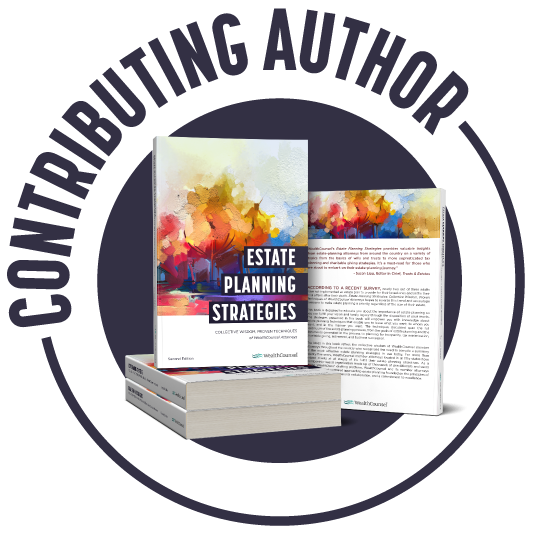
When people hear the term “estate planning,” they often think it’s only for the wealthy or something to put off until retirement. But the truth is, estate planning is for everyone—at every stage of life. Whether you're a young professional, a new parent, or simply someone ready to get organized, a solid estate plan gives you peace of mind and protects the people you love most.
So where do you start?
Here’s a step-by-step guide to what your estate planning attorney will walk you through in building an estate plan that fits your life, your family, and your future.
1. Understand Why Estate Planning Matters
Estate planning isn’t just about what happens after you die—it’s about making sure your wishes are carried out during your life, too. A good estate plan ensures:
- Your children are cared for by people you trust.
- Your finances are managed if you’re unable to do so.
- Your medical decisions reflect your preferences.
- Your assets are passed on with as little delay, confusion, or cost as possible.
Without a plan, state law decides—and that may not align with what you want.
2. Take Inventory of What You Own and What You Owe
Start by listing out:
- Real estate (homes, land, rental properties)
- Bank accounts, retirement accounts, and investments
- Life insurance policies
- Business interests or intellectual property
- Vehicles, valuables, and personal belongings
- Any outstanding debts
Knowing what you own will help you—and your attorney—build a plan that protects those assets and distributes them efficiently.
3. Think About Who You Trust
You’ll need to choose the right people to:
- Handle your affairs if you can’t (agent under a power of attorney)
- Make healthcare decisions on your behalf (healthcare proxy)
- Serve as executor of your will or trustee of your trust
- Care for your children if something happens to you (guardian)
These choices are personal and important—pick people who are trustworthy, organized, and willing to serve.
4. Decide Who Gets What (and When)
This is where the “planning” comes in. Do you want your children to inherit at a certain age? Should assets be held in trust? Would you want someone to receive a specific item or amount?
Estate planning isn’t always about dividing things equally—it’s about dividing things wisely.
5. Create the Core Documents
A comprehensive estate plan typically includes:
- Last Will and Testament: States your wishes and names your executor and guardians.
- Revocable Living Trust (optional): Allows for probate avoidance and long-term asset management.
- Durable Power of Attorney: Lets someone manage your finances if you’re incapacitated.
- Healthcare Power of Attorney & Living Will: Names someone to make medical decisions and outlines your preferences for care.
- HIPAA Authorization: Grants access to your medical information when needed.
- Authorized Caregiver: Allows someone you trust to care for your children if you are temporarily unable.
Your estate planning attorney will help tailor these documents to your situation and to state law.
6. Review and Update Beneficiaries and Transfer Assets
Make sure the beneficiaries on your life insurance, 401(k), IRA, and other accounts are up to date. These designations override your will—so even if your will says one thing, the account will go to whomever is listed as the beneficiary.
7. Store Everything Securely—and Let Someone Know
Keep your signed documents in a safe, fireproof location. Make sure your trusted people (like your agent or executor) know where they are and how to access them in an emergency.
Talk to an Estate Planning Attorney
While it may be tempting to download a few templates or use a DIY website, estate planning is not one-size-fits-all. An experienced estate planning attorney doesn’t just fill in the blanks—they help you create a plan that reflects your family’s unique needs, goals, and values.
Here’s why working with an attorney is so important:
Know All Your Options
Most people don’t know what they don’t know. Should you use a will or a trust? How can you protect your assets from probate or creditors? What if you own a business, or have children from a previous relationship?
An attorney will help you understand your legal options and recommend strategies that match your situation—not just the default choices.
Align Your Plan with Your Family’s Goals
Whether your priority is minimizing taxes, protecting your children, avoiding family conflict, or maintaining privacy, a lawyer can structure your plan to make sure it’s working for you—not just checking boxes.
Avoid Mistakes That Could Hurt Your Loved Ones
DIY estate plans often contain errors or omissions that aren’t discovered until it’s too late—when the plan needs to work and fails. Working with an attorney ensures your documents are legally valid and fully aligned across your financial and personal life.
Keep Your Plan Up to Date
Estate planning isn’t a one-and-done task. As your life changes—marriage, children, divorce, moving states, or growing wealth—your plan needs to evolve. An attorney can guide you through regular updates so your documents always reflect your current wishes.
Bottom line: Estate planning is personal, and the stakes are high. A well-crafted plan can protect your family, preserve your legacy, and give you peace of mind. An estate planning attorney is your partner in making sure that happens—properly, legally, and thoughtfully.
Final Thoughts
Getting started with estate planning may feel overwhelming, but it’s one of the most thoughtful, protective, and empowering things you can do. Whether you’re planning for young children, aging parents, or just your own peace of mind, taking action now saves your loved ones confusion and stress later.
If you’re ready to start, consider reaching out to an estate planning attorney for a free consultation—it’s easier (and more affordable) than most people think.










